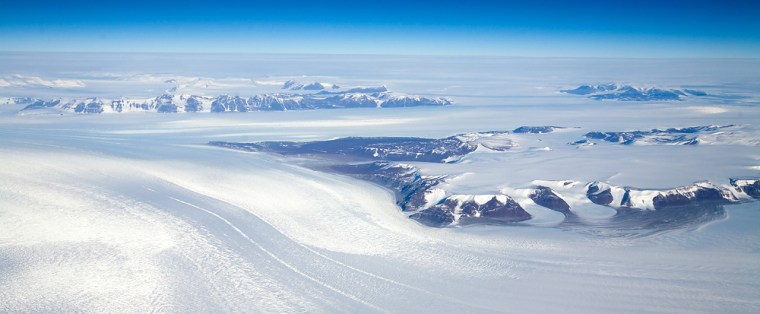Scientists and government officials are falling far behind in their attempts to come up with an authoritative report on global warming — but not because of major disagreements among more than 100 nations and dozens of scientists.
The problem is wrangling over the wording and nuances of general language, three delegates told The Associated Press on Wednesday, the third day of their meeting in Paris. All governments involved must agree on the language of the 12-15 page summary.
“We are at 30 percent (complete) and we have used 60 percent of our time,” Arthur Petersen, who represents the Dutch Environment Ministry, said during a lunch break.
The report from the Intergovernmental Panel on Climate Change, if it is issued on time Friday, will warn the world that global warming is here and worsening, using its bluntest language yet. It is the fourth such report to be issued since 1990.
The report, according to drafts and participants, says it is “very likely” — which means at least 90 percent certain — that climate change is caused by humans burning fossil fuels, and will result in a temperature increase of between 2.5 to 10.4 degrees by the year 2100.
There may be efforts to change that wording to “virtually certain,” which connotes a 99 percent likelihood.
Sea levels debated
Negotiators also started discussing the trickiest issue Wednesday: predictions of rising sea levels. Scientists are trying to incorporate concerns that their early drafts underestimate how much the sea level will rise by 2100 because they cannot predict how much ice will melt from Greenland and Antarctica.
In early drafts, scientists predicted a sea level rise of no more than 23 inches by 2100, but that does not include the ice sheet melts. Many scientists, particularly those in the United States, said that may be too low an estimate and that the computer models that estimate sea level rise do not take into account ice melt.
The authors of the early drafts are changing what they wrote to try to get some of that concern in, Petersen said.
“The question is,” Petersen said, “how do you compute this factor that you really don’t have?”
Hurricane element
And for the first time, the climate panel says stronger hurricanes and tropical cyclones since 1970 are “more likely than not” linked to global warming, according to a draft.
That, however, could change. The issue is still hotly debated in scientific circles. Just last fall, the World Meteorological Organization, a co-sponsor of this report process, said it did not have enough evidence to make a link yet.
The last time the IPCC issued a report, in 2001, it said it did not have enough evidence to link stronger hurricanes to global warming. It did predict stronger hurricanes, though.
Governments are not delaying or fighting substantive issues, as they did in 2001, but work is going slowly anyway — and negotiators are staring at a countdown clock showing them how far behind they are, Petersen said.
Officials added a late night session Wednesday and expect to work late into the night Thursday.
U.S. 'more constructive'
One participant, who asked not to be identified because the talks are confidential, said there was a noticeable change in the U.S. delegation, which some accused of hanging up the 2001 talks: “The U.S. is much more constructive.”
The hang-ups this time are over using words precisely, delegates say. The report is being edited in English, then must be translated into five other languages.
“It has been rather difficult, trying to agree on some of the language,” said Amie Jarra Declerq, a Gambian government representative, without giving examples.
